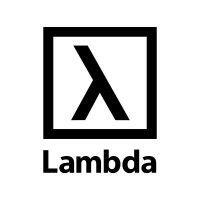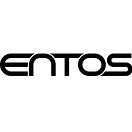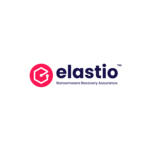Fueling the Future with Research-Driven Venture Capital
KeyTranche Ventures
Investing in what’s next. Guided by deep thematic research and a forward-thinking lens, we back bold founders building transformative companies across AI, NextGen Computing, HealthTech, Blockchain, CleanTech, and other frontier technologies.
Investing with Vision, Backed by Research
Investment Thesis
KeyTranche Ventures is a research-first venture capital and thematic investing firm focused on identifying and investing in transformative opportunities at the intersection of innovation and disruption. Our strength lies in thematic investment research — uncovering long-term secular trends and technologies shaping the future economy. With a sharp eye on global shifts and digital breakthroughs, we support companies from Seed through Series D, driving impact across sectors including AI/ML, NextGen Computing, HealthTech, BlockChain, CleanTech, and beyond. We don’t just write checks — we provide strategic insight, network access, and long-term partnership to help visionary founders scale world-changing ideas.
Venture Capital
We invest in bold founders building category-defining companies, from Seed to Series D. Our venture strategy is rooted in rigorous thematic research, targeting startups that are reshaping industries through innovation in AI, NextGen Computing, HealthTech, Blockchain, FinTech, CleanTech, and beyond.
Thematic Equity
Our public equities platform applies the same research-driven lens to identify high-growth companies riding the wave of transformative themes. Through Triple Gains, we deliver accessible, actionable insights for retail and professional investors seeking long-term exposure to tomorrow’s leaders.
13 Startups Shaping the future
Our Portfolio
We are proud to partner with entrepreneurs redefining industries and solving tomorrow’s biggest challenges. Our portfolio spans early- to growth-stage companies that embody the boldness, creativity, and mission-driven focus we seek in every investment.From AI infrastructure to quantum computing, from advanced robotics to precision medicine — each of our portfolio companies reflects our commitment to investing in innovation with purpose.
Series A | Energy Transition | Carbon Removal Technology
Series B |
Data Centers | Accelerated Compute Fabric
Series C | ML Drug discovery | precise protein engineering
Series B | intraoperative immunotherapy | Focused. Delivered
Series C | Quantum Computing | the new way to create algorithms
Series B | AI/ML & auto chemistry | drug discovery & genetic medicines
Series A | Space | agile, economical space logistics services
Series D | BCI & Neurotechnology | DEVICE empowering autonomy
Research Edge
Powered by Research. Driven by Vision.
At KeyTranche Ventures, everything begins with research. Our edge lies in our ability to identify long-term secular trends before they go mainstream — from the rise of generative AI and precision medicine to the future of quantum computing and decentralized finance. We combine deep thematic intelligence with macro analysis, industry insight, and founder-level diligence to uncover where the world is heading — and invest in the teams building it.Our in-house research fuels both our venture capital strategy and our public market platform, Triple Gains, giving us a unique vantage point across private and public innovation cycles. This research-first approach is how we stay ahead of the curve — and how we help founders and investors do the same.
Co-Invest With Us
Partner with Us to Back the Future
At KeyTranche Ventures, we’re building a differentiated investment platform rooted in research, access, and conviction. We invite family offices, institutional investors, and mission-aligned limited partners to co-invest alongside us in high-impact, high-potential startups shaping the future of technology, health, finance, and sustainability.Our venture investments are backed by deep thematic research and a rigorous diligence process — giving our partners access to early and growth-stage opportunities across sectors such as AI, quantum computing, fintech, digital health, and more.Whether you're looking to diversify across emerging innovation themes or gain curated access to our most compelling deals, co-investing with us offers a front-row seat to the next wave of disruption.Let’s build the future, together.
Our in-house research fuels both our venture capital strategy and our public market platform, Triple Gains, giving us a unique vantage point across private and public innovation cycles. This research-first approach is how we stay ahead of the curve — and how we help founders and investors do the same.
© KeyTranche Ventures, LLC. All rights reserved.













